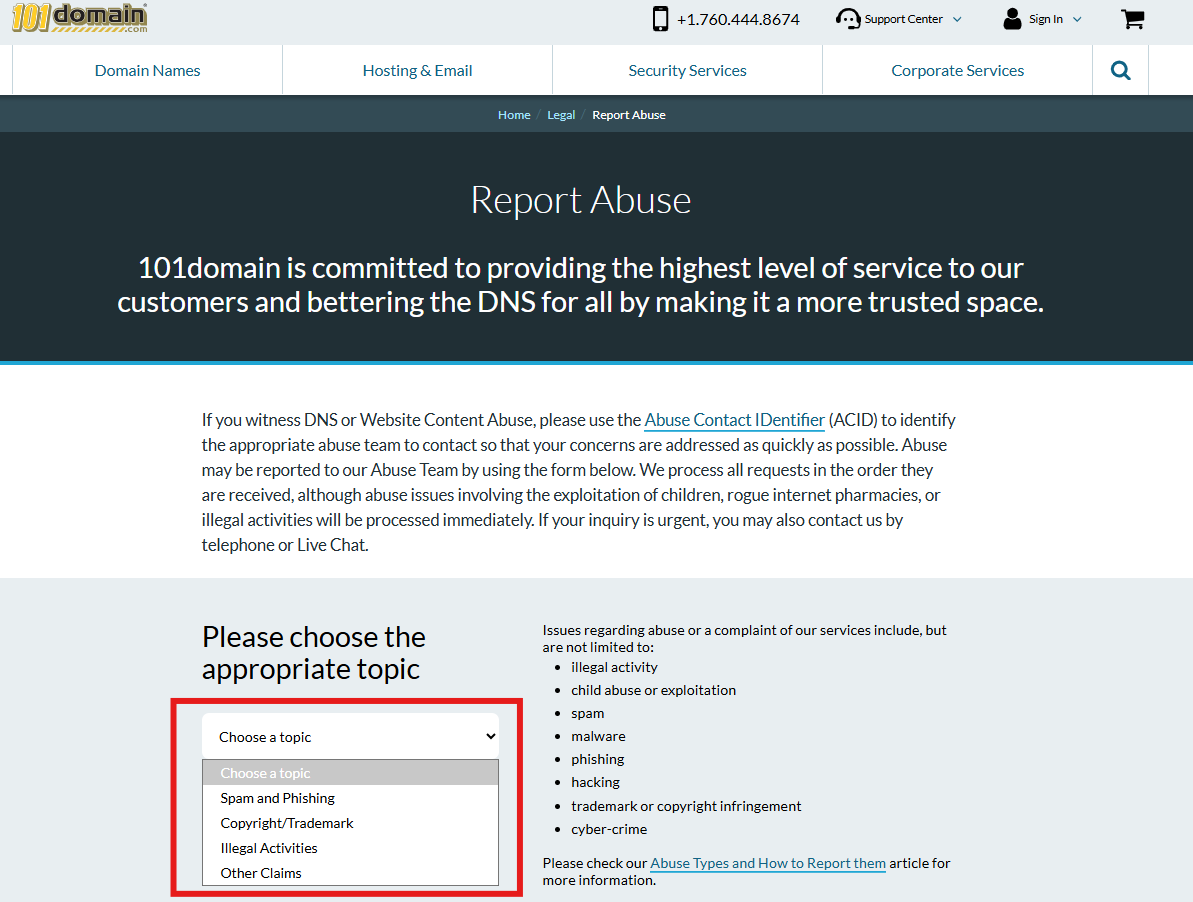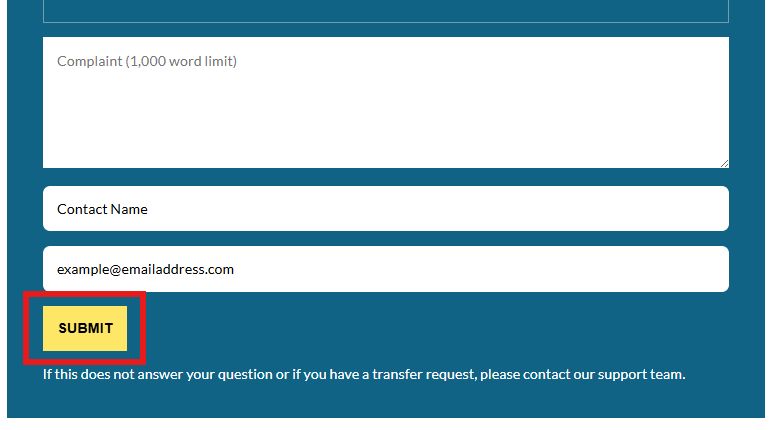This article explains how you can report abuse related to domains managed by 101domain.
Steps to Report Abuse
-
Go to the Report Abuse webform.
-
Select the most appropriate topic for your report.
Some content from a third-party Marketplace app couldn't be migrated.
The app may not be installed or supported on your Cloud site. Please check your Cloud site and reinstall the app manually to restore this content.

-
Complete all required fields in the form.
-
Click Submit to send your report.
